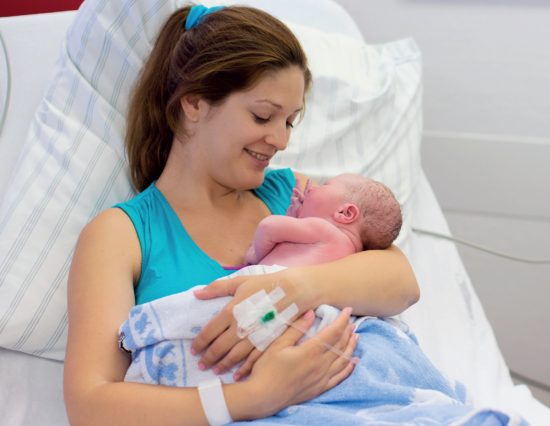Our latest report reveals a crisis in maternity care. While many new mums get fantastic care and support from midwives, others don’t get the quality of care they need. Find out what we’re doing to improve services for women.

Dangerously low staffing levels mean that half of women (50%) experience at least one ’red-flag event’ during childbirth.
NCT worked with the National Federation of Women’s Institutes to look at the survey responses from these women and updated a similar joint report from 2013.
These ‘red flag events’ are signs that there may not be enough midwives available to give women and babies the care they need.
This includes having to wait more than 30 minutes to get pain relief or over an hour to be have stitches.
The report, ‘Support Overdue: Women’s experiences of maternity services 2017′, is based on the experiences of nearly 2,500 women, including hundreds of NCT members.

We will continue to use these findings to press for improvements to maternity services.
On the day the report launched our Senior Policy Adviser, Elizabeth Duff (pictured), presented the findings to the Health Select Committee in Parliament.
Our Press Office work led to the report being covered by every national newspaper (including the front page of The Daily Telegraph), BBC News 24, ITV News, Sky News TV and hundreds of articles on radio stations and regional newspapers and websites.
If you are on social media, please join the conversation using the hashtag #supportoverdue and you can read the full report on our website.